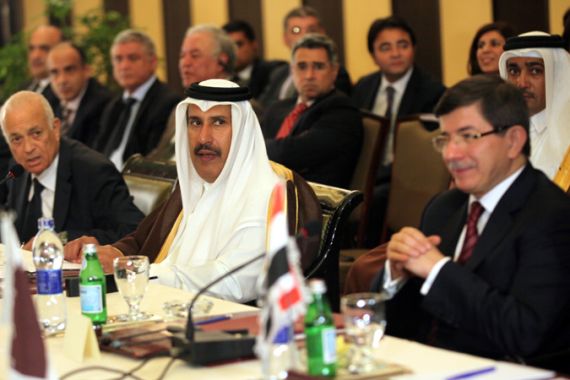
The impact of economic sanctions on Syria
As Arab states decide to cut commercial ties with the Syrian government, will it help end the violence in the country?
The Arab League has approved sweeping sanctions against the Syrian government in a bid to pressure it to put an end to the ongoing crackdown against protests.
The sanctions were drawn up by an Arab League Economic Committee in Cairo on Saturday and they include: suspending all flights from member states to Syria, ending transactions with the country’s central bank, freezing all Syrian assets in Arab countries, and a travel ban on senior officials of the Syrian government.
The move follows Syria’s failure to let monitors into the country, as part of a broader Arab League initiative aimed at ending Assad’s eight-month crackdown on protests.
The United Nations says that more than 3,500 people have been killed so far. There is also a French proposal for humanitarian corridors in Syria to alleviate civilian suffering.
The Qatari prime minister, Sheikh Hamad bin Jasim al Thani, made it clear what the Arab League is trying to do is aimed at preventing any foreign intervention. But he warned Syria if they do not change their position that might become unavoidable.
“Despite the fact that some are asking for foreign intervention, but we as Arab countries and via our procedures we’re trying to prevent any foreign intervention in Syria, and if the Arab countries do not deal in a serious way with this problem, then a foreign intervention, and I am sorry to say, will be the answer,” he said.
Will the sanctions help end the bloodshed? And can this difficult economic situation oust the Syrian president?
Inside Story, with presenter James Bays discusses with guests Ashraf al-Moqdad, a Syrian opposition member; Patrick Seale, the author of Struggle for Arab Independence; and Kamal Wazne, a political analyst.
| “I think the people who are going to be hurt by these sanctions are the average people in Syria, they are going to feel the pain and eventually the Syrian economy will be hurt for a very long time to come.”
Kamal Wazne, a political analyst |